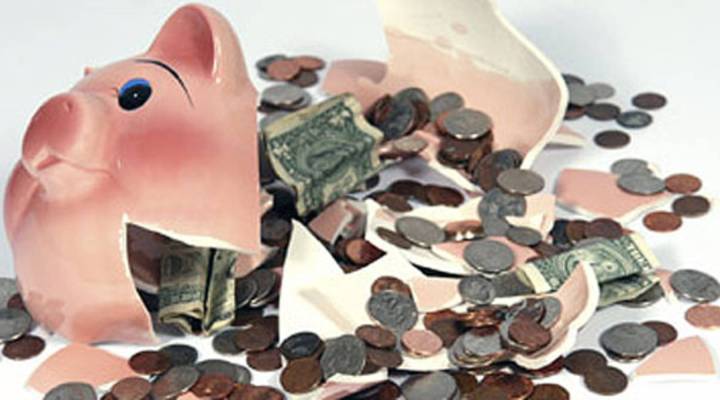
How to switch banks, the smart way

Tess Vigeland: What would you do if you bank started charging for something that had been free?
Man 1: I haven’t seen ’em yet, but I heard that the bank fees are going to hit my account shortly. It is just unfair.
Man 2: Not sure if my bank’s putting it on. If they do start putting it on, it would definitely be a game changer.
Woman 1: We got a notice in the mail that we were going to be starting to have bank fees if we don’t maintain a $15,000. It’s somewhat crazy that you have to pay to use your own money.
Man 3: I started looking around at hte other banks and they’re all doing this. So it’s ******* pissing me off.
Well you don’t have to just accept it. You do have choices — lot of them. But if you’re like most — you’ve got automatic payments and direct deposit — and its no simple feat to just change your bank account. But there is a way to do it.
Norma P. Garcia is a senior attorney at Consumers Union, and she joins me to talk about it. Welcome to the show.
Norma P. Garcia: Thank you very much for having me.
Vigeland: Alright, for folks wanting to move their money to switch banks, it is not as easy as just yanking all your money out of your account.
Garcia: No, it isn’t. It actually has to be a thoughtful process. You want to make sure that you do it in a systematic way, so that you avoid any headaches along the line.
Vigeland: Alright, let’s talk about what the first step would be then.
Garcia: Sure, the first thing we ask you to do is open a bank account with a new bank with a small deposit. And you make a list of all your automatic payments and deposits that are scheduled to go in. And you make sure you communicate that information to your new bank and you make sure that if you have direct deposit you ask your employer to re-route your paychecks to your new bank account.
Vigeland: And so the main reason for the caution is that if you have some of those automatic bills, auto-deposit, it’s gonna take you probably two to three months to get everything situated where it needs to be. So you want some money in the old account and some money in the new account.
Garcia: Yes, that’s absolutely right. You don’t wanna close your old account right away. You want to make sure you’ve given your new account a trial run with all of your automatic deposits and automatic debits. And once you’re sure that everything is working probably and that all of your debits have cleared, then you can consider your old account.
Vigeland: And if you are one of those people who doesn’t use any of those automated services, could you potentially just take your money out of the bank and put it in a different one?
Garcia: You could. But if it’s a checking account, chances are you’ve got some money coming out of that. You might have some outstanding checks that might not have cleared yet. And in that case, you certainly want to make sure that you have left a reserve in your old account and you make sure everything’s cleared before you close out your old account.
Vigeland: Any rules for how long you should wait before you completely clear out of your old bank?
Garcia: We’re suggesting you wait a month.
Vigeland: A month?
Garcia: So you should always leave a small amount at least in your old account before you clear out. And make sure you obtain written confirmation that your account is actually closed.
Vigeland: And why would you need to do that?
Garcia: Well it’s important in case there’s a mistake on the banks part. Some banks will charge you a fee if you don’t maintain a minimum balance in the account. And if you’ve already gone down as much as possible in anticipation of moving, you might find the nasty surprise of a potential overdraft. You don’t want to miss something from your old account that would actually end up causing you potential fees.
Vigeland: Right. Anything that people typically forget to do when they’re switching banks that ends up tripping them up in the future?
Garcia: Well, a couple of things: Be sure you shop around. There are a lot of banks that have some good deals, that are eager for business and they might offer you the best possible bank account at this time. But shop around and know that it is a bit of a process to properly make the shift from one bank to another. But once you’ve made up your mind to do so and you’ve done it carefully, it can work to your advantage, depending on your personal situation.
Vigeland: And you really should do at least a minimum amount of research before you move your money.
Garcia: Yes, and Consumers Union has on our website a list of tips that consumers can use to get through the process of switching, if that’s what they decide to do.
Vigeland: OK, terrific. Norma Garcia, thank you so much for you time.
Garcia: Thank you.
There’s a lot happening in the world. Through it all, Marketplace is here for you.
You rely on Marketplace to break down the world’s events and tell you how it affects you in a fact-based, approachable way. We rely on your financial support to keep making that possible.
Your donation today powers the independent journalism that you rely on. For just $5/month, you can help sustain Marketplace so we can keep reporting on the things that matter to you.











